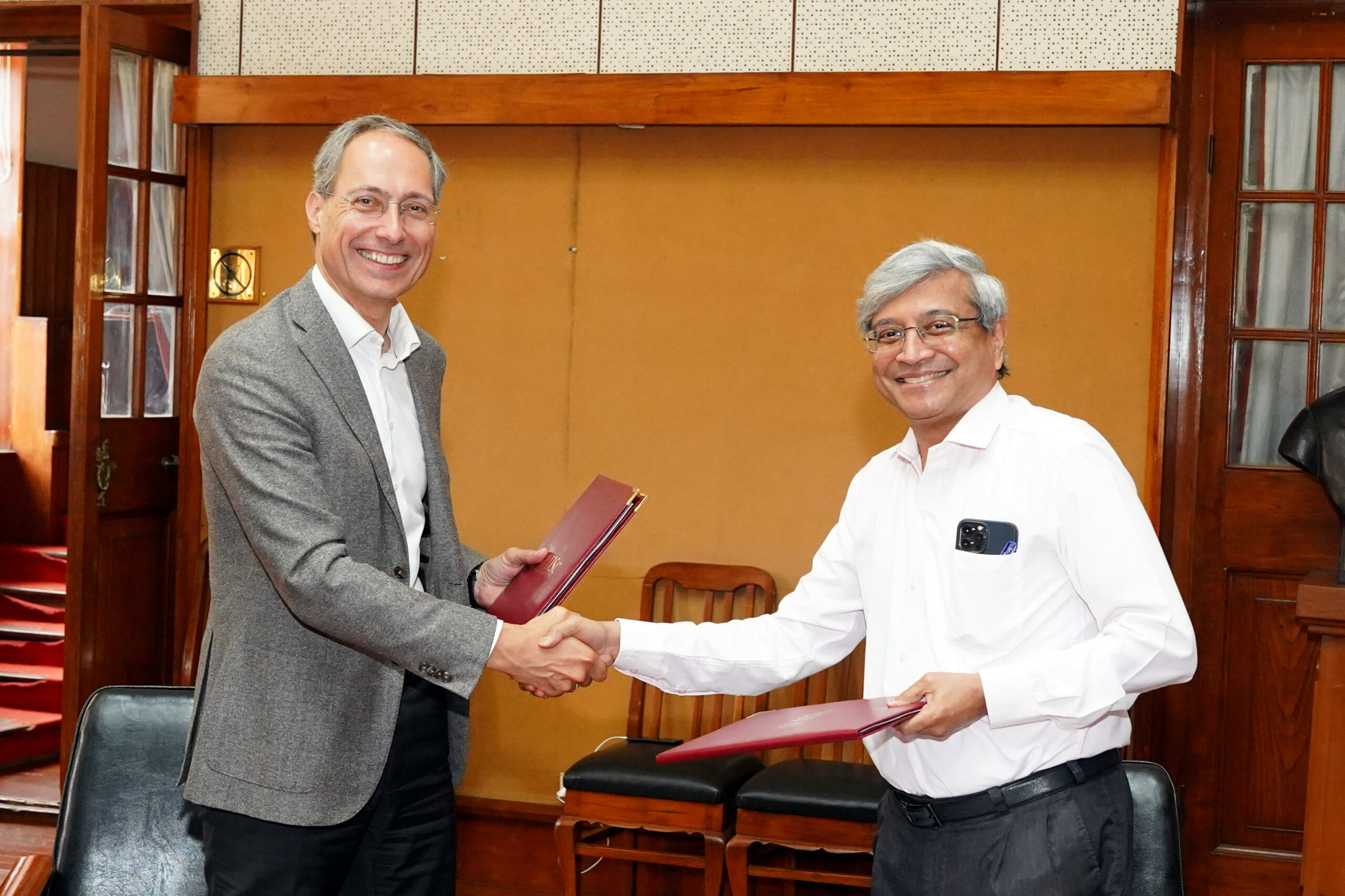The partnership seeks to build on cutting-edge energy and environment related research being carried out at the Interdisciplinary Centre for Energy Research (ICER), IISc, an IISc statement said.
Bengaluru, NFAPost: Indian Institute of Science (IISc) and Shell India have entered into a partnership to promote research and development in the areas of energy and environment.
The partnership seeks to build on cutting-edge energy and environment related research being carried out at the Interdisciplinary Centre for Energy Research (ICER), IISc, an IISc statement said.
A research agreement was signed at the institute in the presence of IISc Director Prof Govindan Rangarajan and Chief Technology Officer at Shell, Yuri Sebregts.
The key aspects that the partnership will focus on include reducing Green House Gas emissions and promoting decarbonisation through innovations such as low-carbon fuels, distributed electrification, carbon sinks, hydrogen generation, efficient power and refrigeration cycles using supercritical carbon dioxide.
Structured research projects will be initiated under this research agreement involving Shell scientists as well as faculty members and students at the Bengaluru-based IISc, the statement said.
Decarbonisation of diverse industrial sectors and increased access to clean energy through technological intervention has a special place in the Indian context, given its push for net-zero emissions.
With climate change taking centre stage, a strong emphasis is on decarbonisation through alternative fuels and improving efficiency as well as utilisation of existing fuels, it was noted.
Prof Rangarajan said, “This collaboration with Shell India will help us tackle pressing energy challenges at the national and international level through cutting-edge technology development that will help reduce the global carbon footprint.”
The collaboration also envisages developing India-focused solutions to meet the energy transition needs outlined by the Government of India.
It is also expected to increase capacity building in the country through training programmes at the postgraduate level, opening up opportunities for students to pursue industry internships, and encourage entrepreneurial ventures by young researchers, according to the statement.
“This partnership demonstrates how crucial it is for academia and industry to collaborate. By integrating expertise from diverse partners, we are able to accelerate the development of ground-breaking technologies that provide much-needed solutions for the energy transition. I look forward to the impactful innovations that no doubt will follow from this research agreement with IISc,” said Yuri Sebregts.
ICER has been carrying out both fundamental and applied research in energy-related areas, with a strong emphasis on translating products to the energy market, according to IISc.
It was conceived in 2012 as a part of the institute’s post-centenary vision to pursue socially relevant research in line with the Government of India’s national missions.
ICER seeks to expand its activities in several domains, with emphasis on process and material development, the latter involving collaborations with manufacturing industries, the statement added.
Agencies





